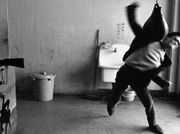Get Access
Join Ocula to request price and availability of artworks, exhibition price lists and build a collection of favourite artists, galleries and artworks.
Thank you for joining us. Just one more thing...
Soon you will receive an email asking you to complete registration. If you do not receive it then you can
check and edit the email address you entered.
Thank you for joining us.
You can now request price and availability of artworks, exhibition price lists and build a collection of favourite artists, galleries and artworks.
Close
Welcome back to Ocula
Enter your email address and password below to login.
Reset Password
Enter your email address to receive a password reset link.
Reset Link Sent
We have sent you an email containing a link to reset your password. Simply click the link and enter your new password to complete this process.
Login




